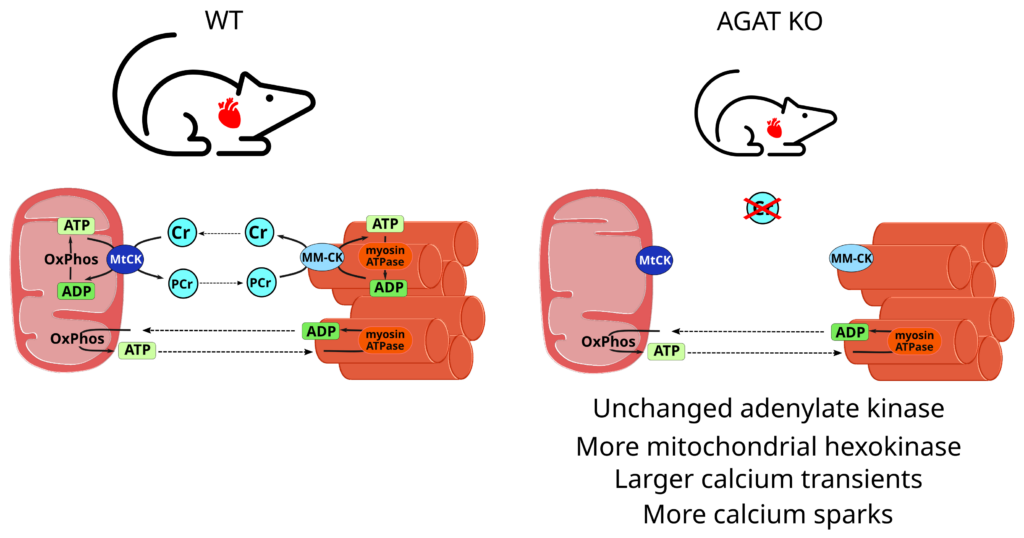Energetics and Calcium Handling in Hearts from Creatine-Deficient Mice
ABSTRACT

The creatine kinase (CK) system is considered to play a crucial role in maintaining cardiac energy homeostasis, ensuring a precise balance between energy production and utilisation. Heart failure is associated with impairments in the CK system, correlating with disease progression. In the current dissertation, the energetic communication between cellular compartments, ultrastructural organization, and Ca2+ handling in cardiomyocytes from two creatine-deficient mouse models was studied. In both mouse models, creatine is absent in the whole body, and CK function is compromised due to the lack of one of the enzymes that synthesise creatine, either L-arginine:glycine amidinotransferase (AGAT) or guanidinoacetate N-methyltranferase (GAMT).
Despite the assumed importance of CK as an energy transfer system in the heart, according to our results, the changes in regulation of mitochondrial energetics were minor and were observed only in AGAT KO hearts. These results may relate to the fact that CK phosphotransfer capacity does not exceed the respiratory capacity of mitochondria, together suggesting that CK is not as important as previously thought. Moreover, the complexity of the regulation of cardiac energetics was underscored by experiments on mouse and rat hearts, showing the significance of intact ultrastructural organization and compartmentalization for enzymatic activities. Although, more noticeable changes were demonstrated in Ca2+ dynamics and contractility in AGAT KO cardiomyocytes, it remains an open question whether these adaptations develop due to the lack of an active CK system in cardiomyocytes or the changes in whole body composition or metabolism.
Taken together, our results suggest that in the heart, creatine-deficiency has only a minor effect on metabolism and energy transfer but may lead to adaptations in Ca2+ dynamics and contractility.
SUPERVISOR: Rikke Birkedal
OPPONENTS
- Associate prof. Coert J. Zuurbier, Meng PhD; University of Amsterdam, The Netherland
- Associate prof. Iman Momken, PhD; University of Paris-Saclay-University of Evry Val d’Essonne, France
TIME OF DEFENCE
29 September 2022 at 10:00 at the Department of chemistry and biotechnology, room SCI109
THESIS
You can download PDF of the thesis here